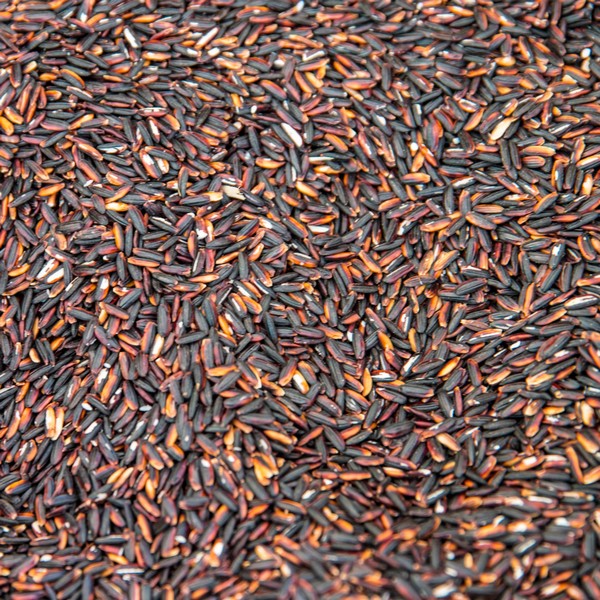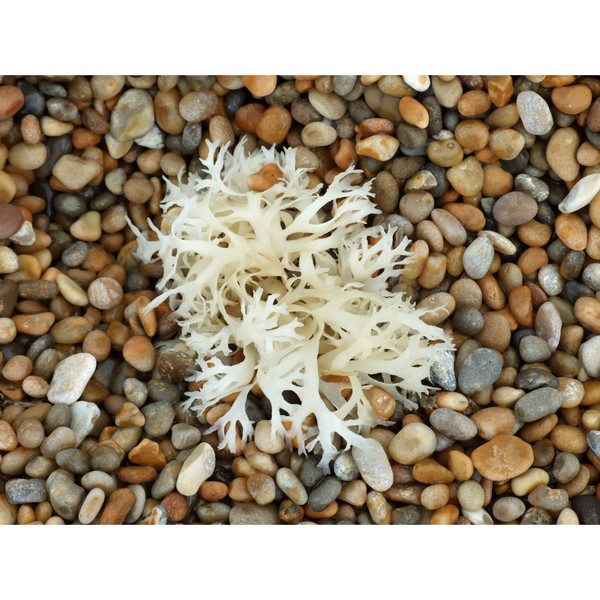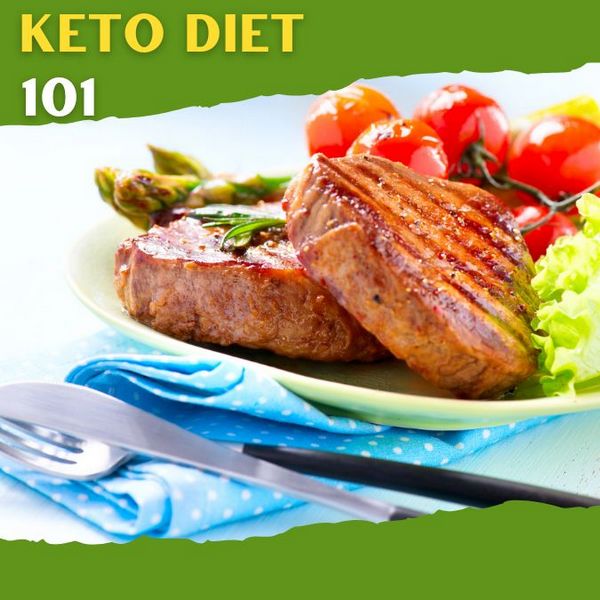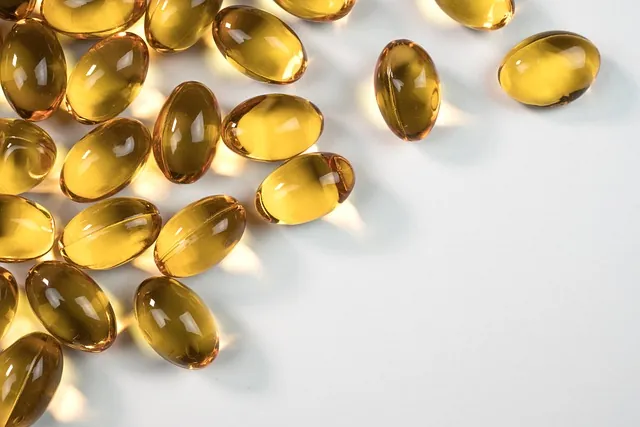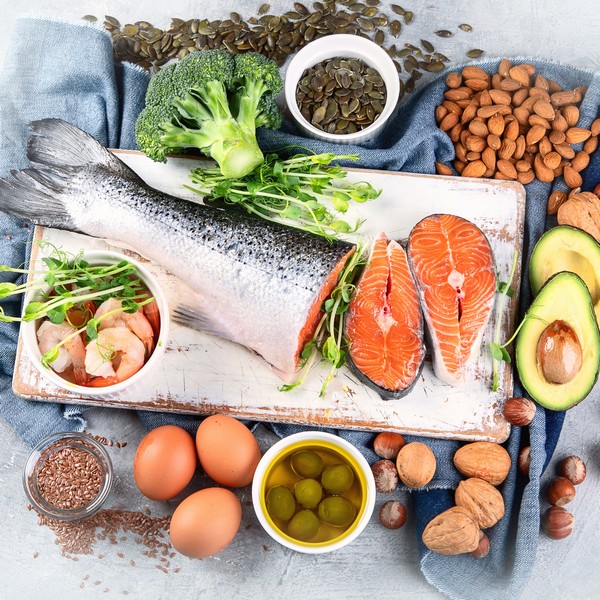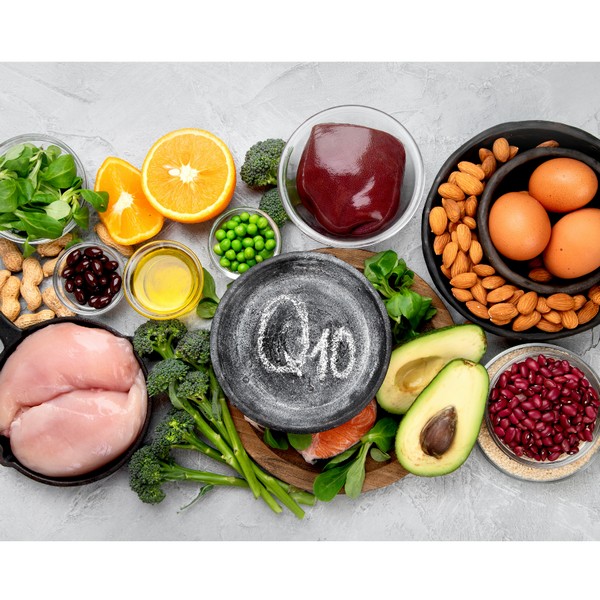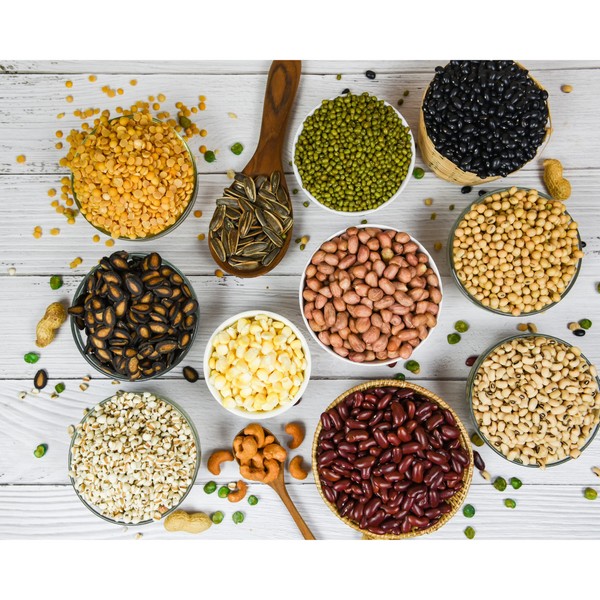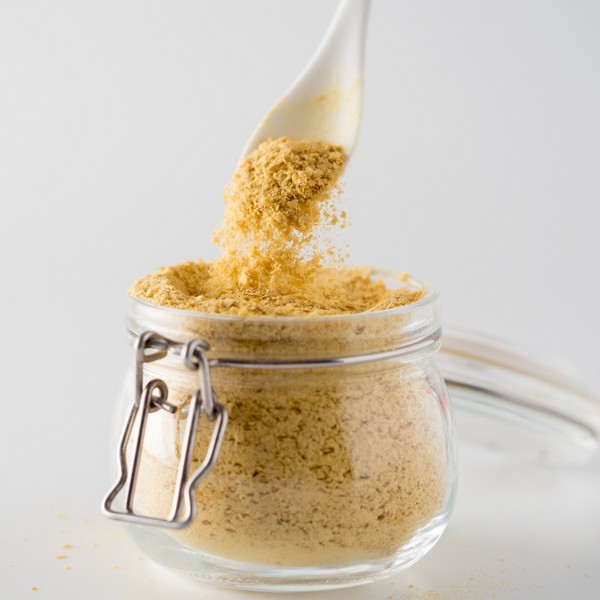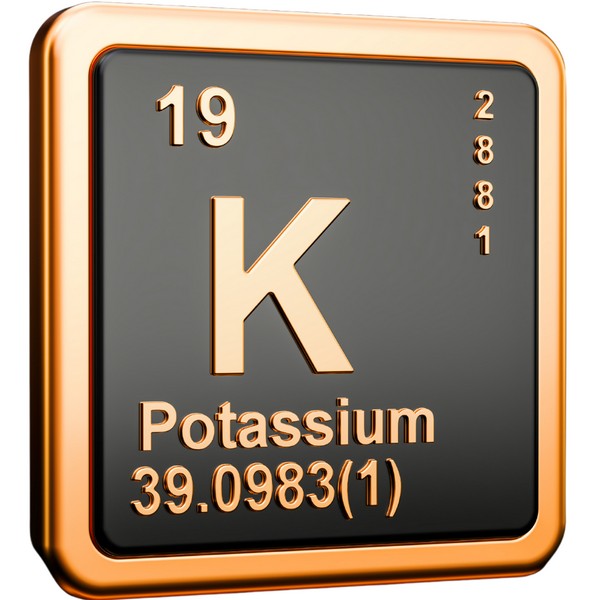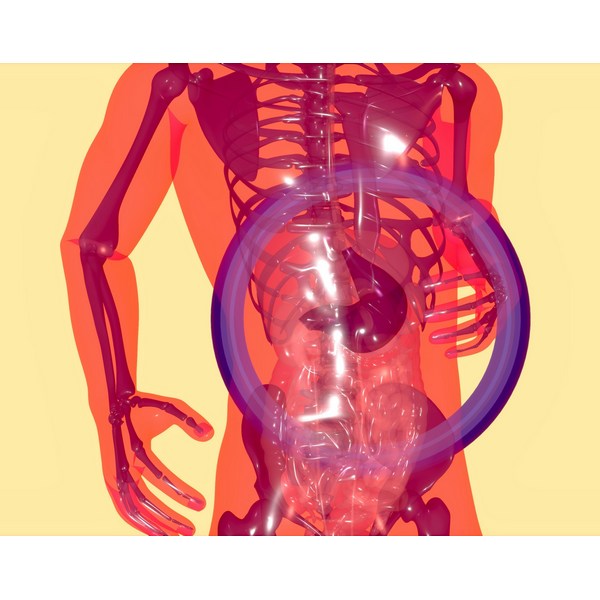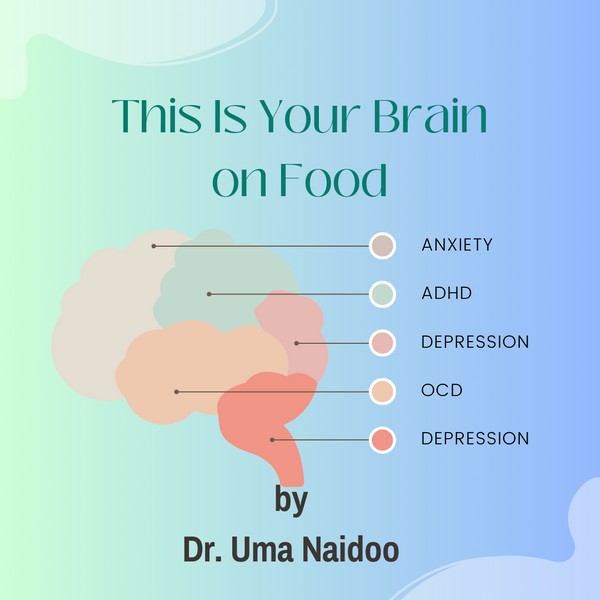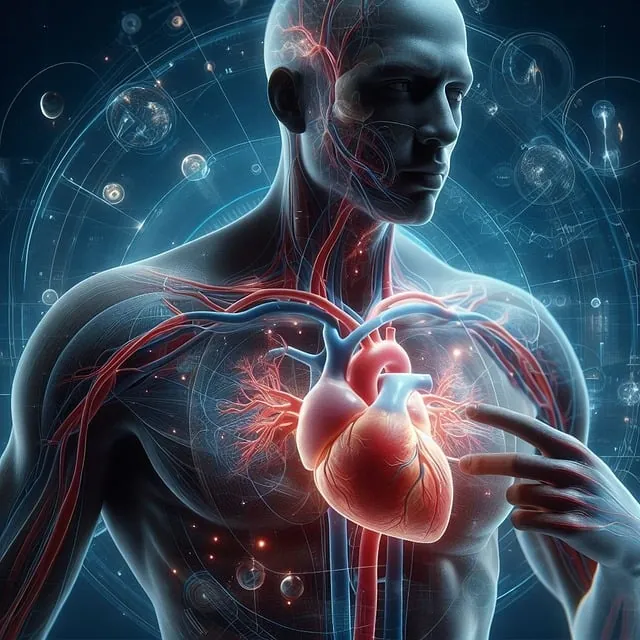Every bite we take is a step toward either wellness or illness. In our fast-paced world, ultra-processed foods have become a staple, silently shaping our health and habits.
These convenient options line supermarket shelves, offering the instant gratification of taste and saving time.
But at what cost?
Studies are increasingly linking these foods to a spectrum of health issues, from obesity to heart disease. As we uncover the consequences of modern eating practices, the food choices we make have never been more critical.
Table of Contents
The Rise of Ultra-Processed Foods
The surge in ultra-processed food intake is a global health concern. These foods are not only ubiquitous in our food supply, accounting for up to 58% of daily energy intake in the US, but they are also linked to a spectrum of adverse health outcomes.
Regular consumption of ultra-processed items, such as sugary cereals, frozen meals, and soft drinks, significantly increases the risk of chronic diseases.
Evidence points to such diets potentially leading to a 50% uptick in cardiovascular disease and related deaths. Likewise, the association between ultra-processed foods and a 12% higher incidence of Type 2 diabetes is alarming.
Mental health isn’t immune either; the risk of anxiety and common mental disorders jumps by about half. Moreover, these dietary patterns are correlated with a sobering 21% greater risk of mortality.
Ultra-processed products, characterized by extensive food additives and lengthy shelf lives, have infiltrated every facet of the modern diet.
It’s critical to grasp the gravity of this trend, as it impacts human health from coronary heart disease to depression, underscoring the importance of dietary guidelines that encourage unprocessed foods.
Impact on Health
Modern diets that are high in ultra-processed foods have become a substantial health concern. These foods are not just prevalent in our daily meals but have been rigorously linked to a myriad of health issues.
The overconsumption of such foods is associated with an increased risk of heart disease, cancer, high blood pressure, obesity, diabetes, and other chronic conditions.
This alarming trend is due in part to the excessive levels of added sugars, sodium, and unhealthy fats present in ultra-processed foods. These ingredients contribute to a nutritional imbalance that can lead to numerous health complications.
To curb this rising tide of health problems, there is a clear and urgent need to encourage dietary patterns that emphasize unprocessed or minimally processed foods.
Association with Cardiovascular Disease
The detrimental effects of ultra-processed foods on heart health cannot be overstated. Consuming such foods has been linked to a dramatic 50% rise in deaths related to heart disease.
Even a slight 10% increase in the consumption of these foods is associated with a higher prevalence of heart conditions like coronary heart disease and cerebrovascular disease.
These foods elevate the risk of heart disease and amplify the chances of dying from such conditions, with the risk increasing anywhere from 40% to 66%.
Link to Chronic Diseases
The ties between ultra-processed foods and chronic diseases extend well beyond cardiovascular health. Research unveils a 12% increased risk of Type 2 diabetes in those who frequently indulge in such foods.
Furthermore, individuals exhibiting higher intake of these products are facing a staggering 40% to 66% greater likelihood of obesity and related sleep issues, not to mention the aforementioned cardiovascular afflictions.
Given the pervasive nature of such diseases, understanding the link between dietary choices and long-term health outcomes is fundamental to preventing and managing chronic health conditions.
Adverse Health Outcomes of Regular Consumption
Routine consumption of ultra-processed foods leads to adverse health outcomes including higher risks of overall cancer. Those with the highest consumption levels of ultra-processed foods have a 62% increase in all-cause mortality.
Excessive intake of these foods contributes to poor health, affecting mental, respiratory, cardiovascular, gastrointestinal, and metabolic functions.
To combat these negative effects, education, improved food labeling, and dietary guidelines promoting unprocessed foods are crucial.
Ultra-processed foods are low in beneficial nutrients like fiber and high in refined salt, added sugars, and unhealthy hydrogenated fats. The food industry must take responsibility for its role in the current health crisis.
| Health Issue | Increased Risk |
|---|---|
| Overall Cancer | Significant |
| Cardiovascular Disease | 50% |
| Type 2 Diabetes | 12% |
| Death from Any Cause | 21% |
| Heart Disease-Related Death | 40% to 66% |
| Depression | 22% |
Specific Examples
Ultra-processed foods, often seen as convenient choices for the time-strapped consumer, have permeated the global food market. These include
- sweet treats like ice cream,
- savory snacks such as chips,
- a variety of cold cuts like ham and sausages
- factory-made bread and cookies
- fizzy drinks
- fruit yogurts
- instant soups
- breakfast cereals
- alcoholic beverages
These products typically have a long shelf life due to the high content of food additives and preservatives. Shelf life is given priority over actual human life.
On the other hand, processed culinary ingredients, despite undergoing some changes, consist of items like sugar, salt, and various oils and kinds of vinegar.
These ingredients, while used to boost the taste of our dishes, are considered processed because they have been altered from their natural state.
Frozen Meals and Their Contribution to Poor Health
Frozen meals epitomize the convenience of ultra-processed foods, but their contribution to poor health is significant. With a composition rich in added sugars, salts, fats, and artificial colorings, they represent a considerable portion—nearly 58%—of the total caloric intake in the United States.
Regular consumption of frozen meals is linked to weight gain and an elevated risk of developing chronic conditions like type 2 diabetes.
Considering these disconcerting connections, there is an urgent call for both consumers and the food industry to prioritize products that offer nutritional quality over mere convenience.
Sugary Cereals and Their Effect on Blood Pressure
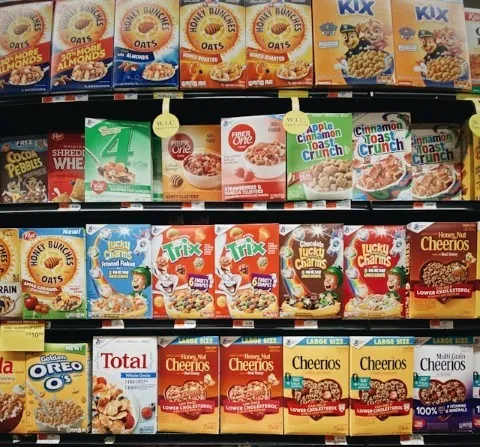
Breakfast often marks the beginning of ultra-processed food intake, with sugary cereals being a popular choice due to their convenience.
These cereals, packed with excessive sugars, can lead to various health problems such as obesity, heart disease, high blood pressure, and diabetes, and their intense sweetness can trigger overeating and blood pressure spikes.
Opting for less processed, meat and eggs provides ample protein and vital nutrients, promoting a healthier cardiovascular system and better blood pressure control.
Culinary Ingredients in Processed Foods
Culinary ingredients such as oils, butter, sugars, spices, and salts form an integral part of our cooking arsenals, whether at home or in restaurant kitchens.
These ingredients fall under Group 2 within the NOVA food classification system, distinct from the ultra-processed Group 4.
While they are indeed processed, their use in meal preparation serves to add the necessary flavors and textures that elevate the dining experience.
While culinary ingredients are vital for creating flavorful dishes, they should be utilized thoughtfully alongside unprocessed or minimally processed items to foster a balanced and healthful diet.
The Role of Food Additives
Food additives are a quintessential element of ultra-processed foods, crucial for enhancing flavor, improving texture, and extending shelf life. Additives like tyrosinase inhibitors are good for shelf life but terrible for human life.
However, the synthetic nature of these additives, and their frequent consumption, are increasingly linked to adverse health effects.
Artificial sweeteners are under scrutiny due to associations with an increased risk of various cancers. Similarly, nitrates and nitrites, used to preserve color and prevent spoilage, have been implicated in a heightened risk of breast and prostate cancer.
Additionally, the high-temperature cooking process for many ultra-processed items often results in the formation of acrylamide, an industrial chemical associated with ovarian and endometrial cancers.
Impact on Health Risks
Ultra-Processed People is published today! And @PenguinUKBooks have taken over this site at Vinegar Yard to spoil lunch for passers by – and of course to encourage people to buy my book! If you’re passing do share a pic on the hashtag #ultraprocessedpeople pic.twitter.com/stBQZtI1mm
— Chris van Tulleken 🏳️🌈 (@DoctorChrisVT) April 27, 2023
Dr Cris van Tulleken – Author of Ultra-Processed People
Ultra-processed foods have increasingly become a staple in many diets, but their impact on health risks is profound and wide-ranging.
A five-year study involving a large cohort of over 100,000 individuals demonstrated a staggering 12 percent increase in the risk of cancer with each 10 percent uptick in ultra-processed food consumption.
These foods’ high levels of added sugars, sodium, and unhealthy fats are key culprits in promoting obesity, cardiovascular disease, high blood pressure, and diabetes.
The higher incidence of hypertension, obesity, and cancers such as breast and colorectal, along with premature death, have been closely associated with high intake of ultra-processed foods.
With evidence pointing to a direct link to 32 detrimental health effects—including amplified risks of heart disease, various cancers, and type 2 diabetes—the role of ultra-processed foods in the surge of chronic non-communicable diseases and overall mortality is becoming increasingly apparent.
Relation to Risk of Heart Disease
The risk of heart disease, one of the leading causes of death worldwide, has a notable correlation with the consumption of ultra-processed foods.
Diets laden with these products have been associated with a 50% increase in the risk of cardiovascular disease-related death.
Furthermore, individuals indulging in ultra-processed foods are subjected to a 40% to 66% higher risk of heart disease-linked fatality, obesity, and type 2 diabetes, hinting at a profound impact on cardiometabolic health.
A puzzling intersection arises with sleep disorders; the intake of ultra-processed foods may exacerbate sleep problems, which in turn can spike the risk of heart disease-related death by the same margin of 40% to 66%.
Lastly, the overall picture is sobering: a significant 12% increase in the propensity for developing type 2 diabetes, a condition closely tied to heart health, is linked to the burgeoning consumption of ultra-processed foods.
Healthier Alternatives

Recognizing that individuals are more likely to make better food choices when they are convenient and affordable is crucial.
While the food industry profits from less healthy options, individuals can empower themselves by consciously choosing whole foods that provide essential nutrients without the added burden of harmful additives.
Unprocessed Foods and Their Benefits
Transitioning towards unprocessed or minimally processed foods is a step in the right direction for optimizing dietary intake. These foods are characterized by minimal alterations from their natural state—think of meat, seafood, and eggs.
Vitamins and nutrients remain intact in these foods, offering a bounty of health benefits.
Simple processes like drying, chilling, or pasteurization ensure safety without compromising the nutritional value that supports overall well-being.
Importance of Following Dietary Guidelines
Observational studies make a compelling case for the importance of dietary guidelines, revealing a strong connection—a 62% increase in the risk of all-cause mortality—with higher consumption of ultra-processed foods.
This stark data reinforces the urgency with which policies need to advocate for a decrease in ultra-processed food intake and a return to whole, unprocessed options.
Recognizing and Avoiding Ultra-Processed Foods

Longitudinal studies from both the Americas and Europe draw a parallel between consuming ultra-processed foods and heightened health risks, including obesity, high blood pressure, diabetes, and even dementia.
Ultra-processed foods are often easily identifiable—they’re the sugary cereals, frozen meals, soft drinks, and ice creams that fill the center aisles of the supermarket.
Characterized by high carbohydrate and high-calorie content, these foods undergo multiple levels of processing. They are often laden with artificial colors, emulsifiers, flavors, and a laundry list of additives.
Scientists are increasingly convinced that it’s not just the poor nutritional content of ultra-processed foods that is detrimental to health but the very processes they undergo.
In pursuit of health, replacing harmful refined oils and trans fats—prevalent in processed foods—with healthier options, such as grass-fed ghee or butter, is advisable.
Conclusion
The consumption of ultra-processed foods presents a worrying threat to human health. A crucial review implicating these foods in numerous health issues has validated concerns over their impact on chronic diseases and mortality. With evidence linking these products to an increased risk of heart disease, various cancers, and mental health disorders, it is clear that ultra-processed food intake is far from benign.
The stakes are especially high for cardiometabolic health, with conditions such as cardiovascular disease and diabetes being major contributors to morbidity and mortality worldwide. Moreover, the association of these foods with a higher risk of death underscores the urgency for dietary change. Consequently, health experts urge the minimization of ultra-processed foods in our diets and recommend the consumption of unprocessed or minimally processed alternatives.
In light of the food industry’s expansive reach and the proliferation of ultra-processed foods within the global food supply, informed choices are paramount. Acknowledging the health risks by reading food labels and following dietary guidelines can be pivotal steps towards safeguarding our health. Reducing reliance on these convenience-oriented products and prioritizing whole, nutrient-dense foods can significantly mitigate health risks and enhance the overall quality of life.
Frequently Asked Questions
What are ultra-processed foods?
Ultra-processed foods are items that have undergone significant processing and often contain additives like preservatives, colorants, or flavor enhancers. They differ from unprocessed foods, which are in their natural state and include products like cereals, soft drinks, frozen meals, and ice cream.
How do ultra-processed foods affect health?
Consuming these foods is linked with an increased risk of heart disease, elevated blood pressure, obesity, and chronic diseases. Studies have indicated a 50% higher risk of cardiovascular disease-related death among those with high ultra-processed food intake.
Are plant-based substitutes considered ultra-processed?
Yes, many plant-based meat and cheese alternatives are classified as ultra-processed due to their engineering and added ingredients.
Do ultra-processed foods make up a significant part of the modern diet?
Unfortunately, they do. In some regions, such as the US, ultra-processed foods can represent up to 58% of a person’s daily caloric intake.
What is one recommended dietary change to avoid the risks associated with these foods?
Dietary guidelines suggest increasing the intake of unprocessed or minimally processed foods, which contain more beneficial nutrients and fewer harmful additives, to reduce the health risks associated with ultra-processed foods.
Dr Chris van Tulleken
Ultra-Processed People
-Chris van Tulleken’s experiment reveals the health risks and addictive nature of Ultra-Processed Foods (UPF), linking them to disease and environmental harm.
-Unveils the truth that fighting diet-related diseases goes beyond personal choice, highlighting the food industry’s role in the UPF crisis.
-Offers solid research showing UPF’s detrimental effects on health, from a trusted scientist and doctor.
-Experience Chris’s own UPF diet journey, revealing its shocking impact on his health, making the issue relatable.
-Highlights UPF’s dominance in our diet and its status as the only affordable option for many, prompting a rethink of global food accessibility.
-Presents real-world strategies for individuals and policymakers to fight the UPF epidemic, encouraging informed food choices.
-Motivates readers to join a movement towards healthier, sustainable food practices, inspired by a compelling manifesto to rethink our eating habits.
Research van Tulleken, C., 2023. Ultra-Processed People: The Science Behind Food That Isn't Food. WW Norton & Company. Baker P, Machado P, Santos T, et al. Ultra-processed foods and the nutrition transition: Global, regional and national trends, food systems transformations and political economy drivers. Obes Rev2020;21:e13126. doi:10.1111/obr.13126 pmid:32761763 Fardet, A. (2016). Minimally processed foods are more satiating and less hyperglycemic than ultra-processed foods: a preliminary study with 98 ready-to-eat foods. Food & Function, 7(5), 2338-2346. https://pubmed.ncbi.nlm.nih.gov/27125637/ Fiolet, T., Srour, B., Sellem, L., Kesse-Guyot, E., Allès, B., Méjean, C., ... & Touvier, M. (2018). Consumption of ultra-processed foods and cancer risk: results from NutriNet-Santé prospective cohort. BMJ, 360, k322. Retrieved from https://www.bmj.com/content/360/bmj.k322.full Hall, K. D., Ayuketah, A., Brychta, R., Cai, H., Cassimatis, T., Chen, K. Y., ... & Walter, M. (2019). Ultra-processed diets cause excess calorie intake and weight gain: An inpatient randomized controlled trial of ad libitum food intake. Cell Metabolism, 30(1), 67-77.e3. Retrieved from https://www.cell.com/cell-metabolism/fulltext/S1550-4131(19)30248-7 Juul, F., Hemmingsson, E., Trends in consumption of ultra-processed foods and obesity in Sweden between 1960 and 2010, Public Health Nutrition, 20(12), 2177-2185. Retrieved from https://doi.org/10.1017/s1368980015000506 Juul, F., Martinez-Steele, E., Parekh, N., Monteiro, C. A., & Chang, V. W. (2018). Ultra-processed food consumption and excess weight among US adults. British Journal of Nutrition, 120(1), 90-100. Retrieved from https://doi.org/10.1017/s0007114518001046 Martinez Steele, E., Juul, F., Neri, D., Rauber, F., Monteiro, C. A., Consumption of ultra-processed foods and obesity in Brazilian adolescents and adults, Preventive Medicine, 81, 9-15. https://doi.org/10.1016/j.ypmed.2015.07.018 Mendonça, R. D., Lopes, A. C. S., & Pimenta, A. M. (2019). Ultra-processed food consumption and the incidence of hypertension in a Mediterranean cohort: the Seguimiento Universidad de Navarra Project. American Journal of Hypertension, 32(11), 1067-1075. Retrieved from https://academic.oup.com/ajh/article/32/11/1067/5537314 Mendonça, R. D., Lopes, A. C., & Pimenta, A. M. (2019). Ultra-processed food consumption and risk of overweight and obesity: the University of Navarra Follow-Up (SUN) cohort study. American Journal of Clinical Nutrition, 104(5), 1433-1440. Retrieved from https://academic.oup.com/ajcn/article/104/5/1433/4564630 Monteiro, C. A., Cannon, G., Lawrence, M., Costa Louzada, M. L., & Pereira Machado, P. (2018). Ultra-processed foods, diet quality, and health using the NOVA classification system. World Nutrition, 9(1), 5-28. Retrieved from https://www.wphna.org/htdocs/downloads/2018_WN1_Ultra-processed_Foods_NOVA.pdf Rauber, F., da Costa Louzada, M. L., Steele, E. M., Millett, C., Monteiro, C. A., & Levy, R. B. (2020). Ultra-processed food consumption and chronic non-communicable diseases-related dietary nutrient profile in the UK (2008-2014). Nutrients, 12(8), 2098. Retrieved from https://www.mdpi.com/2072-6643/12/8/2098/htm Rico-Campà, A., Martínez-González, M. A., Alvarez-Alvarez, I., de Deus Mendonça, R., de la Fuente-Arrillaga, C., Gómez-Donoso, C., ... & Bes-Rastrollo, M. (2019). Association between consumption of ultra-processed foods and all cause mortality: SUN prospective cohort study. BMJ, 365, l1949. Retrieved from https://www.bmj.com/content/365/bmj.l1949.full Schnabel, L., Kesse-Guyot, E., Alles, B., Touvier, M., Srour, B., Hercberg, S., ... & Julia, C. (2019). Association between ultraprocessed food consumption and risk of mortality among middle-aged adults in France. JAMA Internal Medicine, 179(4), 490-498. Retrieved from https://jamanetwork.com/journals/jamainternalmedicine/fullarticle/2723626 Scrinis G, Monteiro C. From ultra-processed foods to ultra-processed dietary patterns. Nat Food2022;3:671-3. doi:10.1038/s43016-022-00599-4 pmid:37118150 Srour, B., Fezeu, L. K., Kesse-Guyot, E., Alles, B., Mejean, C., Andrianasolo, R. M., ... & Julia, C. (2019). Ultra-processed food intake and risk of cardiovascular disease: prospective cohort study (NutriNet-Santé). BMJ (Clinical research ed.), 365, l1451. Retrieved from https://www.bmj.com/content/365/bmj.l1451 Sterne JA, Egger M. Funnel plots for detecting bias in meta-analysis: guidelines on choice of axis. J Clin Epidemiol2001;54:1046-55. doi:10.1016/S0895-4356(01)00377-8 pmid:11576817 Taylor L. Colombia introduces Latin America’s first junk food tax. BMJ2023;383:2698. doi:10.1136/bmj.p2698 pmid:37967891 Tobias DK, Hall KD. Eliminate or reformulate ultra-processed foods? Biological mechanisms matter. Cell Metab2021;33:2314-5. doi:10.1016/j.cmet.2021.10.005 pmid:34699743 United Nations Children's Fund (UNICEF). Policy Brief: Sugar-Sweetened Beverage Taxation 2021. https://www.unicef.org/documents/advocacy-packages-food-environment-policies. World Health Organization. Guideline: Sugars intake for adults and children. 2015 https://www.who.int/publications/i/item/9789241549028.
Postbiotics: What They Are and Why They Are Important
Key Takeaways Postbiotics 101: They’re beneficial by-products from probiotics that consume prebiotics Boosts Immunity: Postbiotics sharpen your immune system, helping fight off pathogens and reducing…
Is Eating Sugar Really That Bad For Your Health?
Should You Really Be Concerned? In short, YES! Thank you, that’s all folks, and do have a good evening. Seriously though, extensive research has established…
Bee Pollen: Nature’s Secret Superfood
Key Takeaways Bee pollen is packed with essential nutrients and offers numerous health benefits. It supports immune function, boosts energy, and promotes overall well-being. Adding…
Magnesium: Better Sleep, Stress Relief and More
Whole Food Vitamin C Complex: Expert Tips for Health
Key Highlights Whole food vitamin C complex is essential for a strong immune system and overall health. Unlike synthetic ascorbic acid, whole food vitamin C…
Healthy Fat: is Butter Better?
Key Takeaways Saturated fats, like those found in butter, may not be as harmful as once thought and can be part of a healthy diet….
How Stabilized Rice Bran Supports Digestive & Heart Health
Key Takeaways – Stabilized rice bran is a nutrient-rich source of vitamins, minerals, and antioxidants. – The stabilization process prevents rancidity, making it a long-lasting…
How Collagen Supports Healthy Skin, Joints, and More
Key Takeaways Collagen is the most abundant protein in the body, supporting the structure of skin, bones, and connective tissues. It helps maintain skin elasticity,…
Benefits of Sea Moss Explained
Key Takeaways Rich in Nutrients: Sea moss is packed with essential vitamins, minerals, and antioxidants, supporting overall health and wellness. Supports Immune Function: Its high…
Natural Treatment for Irritable Bowel Syndrome (IBS): Effective Remedies Explored
Understanding IBSSymptoms of IBSRole of Diet in IBSNatural Remedies for IBSSupplements for IBSRole of Probiotics in IBSFrequently Asked Questions Understanding IBS Irritable Bowel Syndrome (IBS)…
Keto Diet 101: A Complete Beginner’s Guide
Key Highlights The ketogenic diet is a low-carb, high-fat diet that can lead to weight loss and has many health benefits. By reducing carbohydrate intake…
Copper: Little-Known Health Benefits
Key Takeaways Copper is an essential trace mineral with benefits, including ceruloplasmin production, energy production and antioxidant properties. Copper is critical for brain health by…
How Cod Liver Oil Can Transform Your Health and Wellness
Cod liver oil has been used for centuries as a natural remedy for various health conditions. Packed with essential nutrients and fatty acids, cod liver…
Creatine Myths Debunked: Separating Fact from Fiction
Key Takeaways Common myths about creatine, such as it causing kidney damage, weight gain, and being a steroid, are widespread but unsupported by scientific evidence….
Boron: Benefits of a Lesser-Known Mineral
Key Takeaways Boron is a trace mineral with significant health benefits. It supports brain function, bone health, and hormonal balance. Understanding boron’s role can improve…
Cholesterol Misconceptions: Separating Fact from Fiction
Key Takeaways: High inflammation and blood pressure are major risk factors for heart disease. Cholesterol is vital for hormone production, cell membrane structure, and digestion,…
Carnivore Diet: Benefits, Risks, Food List & More
Key Takeaways The carnivore diet is a keto diet that only allows for animal-based foods, and has potential health benefits. Tips for success include hydrating,…
11 Electrifying Health Benefits of Trace Minerals
What are Trace Minerals?The Major Roles of Trace MineralsSources of Trace MineralsDeficiencies in Trace MineralsThe Impact of Trace Minerals on Specific Health ConditionsFrequently Asked Questions…
ALA vs. DHA & EPA Omega-3: Why Source Matters
Key Takeaways ALA (Alpha-Linolenic Acid) is found in flaxseeds, chia seeds, and walnuts, but converts poorly to DHA and EPA. DHA and EPA are critical…
Liver: 5 Surprising Benefits Backed by Science
Hold on! Don’t run away! You need to read this. Liver is a highly nutritious organ meat that is often overlooked in modern diets. Packed…
6 Best Natural Ways to Manage Your Blood Sugar: A Quick & Easy Guide
1. Intermittent fasting2. Exercise3. Dietary fiber4. Sleep5. Weight loss6. SupplementationBioclinic NaturalsPGX BiotiquestSugar Shift Every time you eat it, it’s plotting something sinister. Sugar isn’t as…
Eggs: A Comprehensive Guide
Key Highlights Eggs are a nutritional powerhouse, containing all the essential vitamins and minerals needed for overall health. Vital role in a balanced diet, providing…
Taurine: The Mighty Amino Acid for Optimal Health
Key Takeaways Taurine supports heart health, regulates blood pressure, and reduces oxidative stress. Essential for muscle function, brain health, and cognitive function. Aids in insulin…
Conjugated Linoleic Acid (CLA): Benefits & Sources
Key Takeaways CLA is a type of fatty acid found primarily in animal products like beef and dairy. Known for potential benefits such as weight…
Berberine Has 11 More Incredible Benefits Than You Thought
Berberine is a compound found in several plants that has been used for centuries in traditional Chinese medicine and Ayurveda. It has recently gained popularity…
Medium Chain Triglycerides (MCTs): Uncovering 5 Health Benefits
This potent, natural source of energy has gained considerable attention in recent years for its impressive array of benefits. MCT oil is a versatile addition…
CoQ10: What Is It and Why Is It Important?
Key Takeaways CoQ10 (Coenzyme Q10) is an antioxidant produced by the body, essential for energy production in cells. Levels of CoQ10 naturally decrease with age…
Protein: You probably need more
Key Takeaways Protein is needed for building and repairing body tissues. It supports muscle growth, immune function, and hormone production. Bioavailable sources of protein include…
L-Glutamine and Gut Health: Benefits and Side Effects
Key Takeaways L-Glutamine is essential for gut health. Benefits include improved digestion and reduced inflammation. Potential side effects are rare but can occur in high…
Calcium Supplements: What You Need to Know
Key Takeaways Calcium supplements have been linked to heart disease and kidney stones. Excess calcium from supplements can lead to imbalances and health issues. Natural…
Trimethylglycine TMG: Betaine Anhydrous Explained
Key Takeaways Betaine Anhydrous (TMG) is a compound found naturally in various foods and offers several health benefits. TMG supports liver health by reducing fatty…
Do This! The Ultimate Guide to Fasting Safely and Effectively
In our increasingly busy lives, finding time to take care of our bodies can often take a backseat. One method that has gained attention recently…
What You Need to Know About Salt and Your Health
Table of ContentsThe Health Benefits of Unrefined Sea SaltElectrolyte BalanceMineral ContentImproved HydrationBoosted Energy LevelsImmune SupportImproved DigestionBalanced pH LevelsReduced Water RetentionHeart Health SupportStronger Bones and TeethEnhanced…
5-HTP: Natural Ways to Boost Serotonin and Improve Mood
Key Takeaways: 5-HTP is a natural compound that helps boost serotonin levels in the brain. It can support mood regulation, sleep improvement, and stress reduction….
Allulose: The Best Sugar Alternative
Key Takeaways Allulose is a low-calorie sweetener found naturally in some fruits. It does not raise blood sugar levels, making it suitable for diabetics. Allulose…
Vitamin E Complex
Key Takeaways Vitamin E is a powerful antioxidant that protects cells from oxidative damage, reducing the risk of chronic diseases. The vitamin E complex includes…
Iron Overload: Symptoms & Prevention Tips
Key Takeaways: Iron overload happens when the body absorbs excessive iron, which can damage organs. Common symptoms include fatigue, joint pain, and skin changes. Early…
Vitamin A (Retinol): Essential Nutrient for Health
Key Takeaways: Natural Vitamin A, also known as Retinol, is crucial for vision, immune function, and skin health. Retinol is essential for healthy vision, particularly…
Silica: for Healthier Skin, Hair, and Nails
Key Takeaways: Silica supports strong and healthy skin, hair, and nails. It promotes bone health by boosting collagen production. Silica helps improve joint flexibility and…
Zinc Supplements: Risks and Dangers
Key Takeaways Zinc supports immunity, wound healing, and cell growth. High zinc supplement doses can cause health problems. Always consult a healthcare provider before taking…
Grains & Legumes Secretly Harming Your Health? Find Out Now!
Key Takeaways: – Grains and legumes contain antinutrients like lectins and phytic acid, which can interfere with nutrient absorption. – These foods may trigger digestive…
Benefits of Nutritional Yeast
Key Takeaways Nutritional yeast is a rich source of vitamins and minerals. It supports immune function and promotes skin health. Its cheesy flavor makes it…
Increase GLP-1 Agonists Naturally
Tallow: Benefits, Uses, and Nutrition
Key Takeaways: Tallow is a nutrient-rich animal fat with many practical uses. It contains valuable vitamins such as A, D, E, and K. Tallow is…
13 Most Dangerous Foods Revealed
Key Highlights Fugu, or pufferfish, is one of the most poisonous foods in the world, with its organs containing a neurotoxin that can paralyze motor…
8 Key Signs of Nutrient Deficiency
Key Takeaways Magnesium: A multitasker that aids in over 300 biochemical reactions in the body. Copper: Supports neurological function, cardiovascular and immune system health, iron…
Red Palm Oil: Unveiling The Potent Health Benefits
Struggling to find the right oil for your health and kitchen? Red palm oil is packed with nutrients that might just be what you need….
Potassium: Benefits & Sources
Key Takeaways Potassium is essential for regulating fluid balance, nerve signals, and muscle function. It supports heart health and helps maintain proper blood pressure. Adequate…
5 Major Benefits of Omega-3 Fatty Acids
Key Takeaways Omega-3 fatty acids support heart health by reducing triglycerides and lowering blood pressure. They play an important role in brain function and development,…
Actual Superfoods: Real Foods You Should Be Eating
Key Takeaways Superfoods are nutrient-dense foods, offering essential vitamins, minerals, and fats. Prioritize high-quality sources for optimal nutrition. They support overall health, boost energy, and…
TUDCA Benefits for Health
Key Takeaways TUDCA promotes liver health, aiding cell protection and repair. Enhances digestion by improving bile flow and supporting gut health. May protect brain health…
Spirulina: Health Benefits and Uses
Key Takeaways Spirulina boosts immune function with its high nutrient content and antioxidant properties. Rich in proteins and essential vitamins, enhances overall nutrition. Helps reduce…
L-Carnitine: Benefits, Dosage, and Side Effects
Key Takeaways L-Carnitine supports fat metabolism and energy production. Benefits include enhanced exercise performance and improved heart health. Proper dosing minimizes potential side effects. Understanding…







